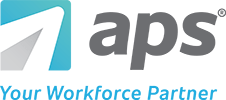How Churches Can Overcome Payroll and HR Technology Gaps
Churches and ministries are familiar with adapting to changing situations. A recent example is churches that have conducted virtual sermons to support the well-being of their congregations. Churches do an excellent job of keeping the best interests of their members at heart during times of change. It’s equally important to take care of those who run the day-to-day operations of faith-based organizations.
One of the best ways religious organizations can care for their employees during transition is through payroll and HR technology. To do this, churches must first identify the inefficiencies in their current solution. In this article, church leaders will learn how to identify payroll and HR technology challenges in their existing systems. They will also learn how to improve their employees’ experience while working for the church by closing those gaps.
Common Payroll and HR Technology Gaps
You may have experienced payroll and HR technology gaps without realizing it. Some of these gaps could include the following:
- Employees have limited visibility and access to vital information like current benefit plans.
- The inefficient management of employee data like wage rates and tax deductions in multiple systems.
- A disconnect between your payroll and accounting information that causes duplicate data entry or incorrect reporting.
While these technology gaps may be challenging, adopting a unified payroll and HR platform will allow you to automate your ministry’s payroll and HR processes and create a more engaging employee experience. Here are some examples of how you can close your church’s payroll and HR technology gaps:
Overcoming Payroll and HR Technology Gaps
While these technology gaps may be challenging, adopting a unified payroll and HR platform will allow you to automate your ministry’s payroll and HR processes, and create a more engaging employee experience. Here are some examples of how you can close your church’s payroll and HR technology gaps:
Self Service
Self-service applications provide a streamlined way to share information and create autonomy among your employees. Church staff needs to have access to payroll and HR information from any device, no matter where they’re serving. Empower your employees with visibility to the following information:
- Benefits enrollment details to confirm accuracy and coverage.
- Timecard information and the status of PTO requests.
- Tax forms for employees, including weekend musicians and childcare workers.
Self-service apps allow ministries to communicate with their employees and volunteers using alerts and newsfeeds. When managing remote employees or multiple campuses, self-service communication tools keep your church staff and volunteers engaged.
Integrations With Church Financials
The relationship between payroll and finance data is significant for ministries, as salaries are primarily self-funded by the church. Integrating your ministry’s finance system with your payroll solution ensures information is pulled from the proper fund allocations. Unifying payroll and finance data provides visibility into budget reports so churches know exactly how money is distributed.
Wages and deductions are accurately pulled from your payroll solution and reflected in the accounting system to provide better insight into your church’s financials. Leaders have better visibility into the allocation of budget funds because the data is accurate. This transparency allows them to make informed decisions about the church’s future and invest dollars back into their ministry.
Looking for Church Payroll and HR Technology?
Paperless Payroll
In a crisis or national emergency, cloud-based paperless payroll lets you remotely pay your employees by direct deposit, or paycard, regardless of where your employees work. Timely paychecks keep employees happy, and paperless payroll reduces printing costs associated with physical checks.
You can take this further by eliminating paper timesheets and time cards. When time tracking data is housed in the same database as payroll data, employees are paid accurately and on time. This centralization of information also saves church HR managers from correcting payroll errors after processing and issuing off-cycle paychecks.
Document Management
Whether managing your church staff remotely or across multiple campuses, they need access to essential documents like employee handbooks and benefits information. Online document management makes it easy for ministries to store congregational and employee-specific paperwork in a central location for better visibility.
Another important aspect of document management is tracking employee and volunteer signatures. Payroll and HR technology provides the ability to electronically sign documents, like updated church policies or time cards, ensuring acknowledgment and compliance.
Leveraging Technology to Further Your Mission
By identifying and correcting payroll and HR technology gaps, churches can become better stewards of their finances by driving down costs and putting more funds into the congregation’s mission.
Employees and volunteers are satisfied with the flexibility and ease of use, while the organization becomes more resilient and cost-efficient. As the workplace becomes more fluid, ministries using an all-in-one payroll and HR platform can quickly adapt to whatever the future holds.



